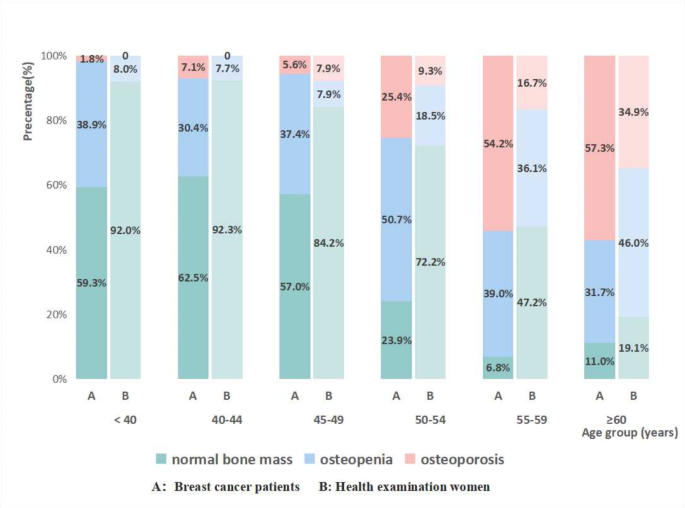Study Reveals Alarming Trends in Bone Health Among Newly Diagnosed Breast Cancer Patients

A recent retrospective cross-sectional study has shed light on the alarming trends in bone health among newly diagnosed breast cancer patients, highlighting the need for routine calcium monitoring and comprehensive bone density assessments.
The study, conducted by researchers, investigated the status of bone health in a large sample of female BC patients at the time of initial diagnosis. The findings revealed that:
- 15.3% of the patients experienced hypocalcemia (low serum calcium levels)
- Median vitamin D level was lower than the epidemiological value
- Only 6.7% of BC patients exhibited adequate voltage D levels, while 52.5% had a vitamin D deficiency and 30.6% were insufficient
The researchers found that vitamin D deficiency or insufficiency is a significant risk factor for breast cancer initiation and progression.
The study also showed that:
- Women with severe vitamin D deficiency were more likely to have triple-negative breast cancer (TNBC)
- The proportion of TNBC exceeded those in luminal and Her-2 overexpression subtypes
- BC patients had lower vitamin D levels compared to women without breast cancer
Furthermore, the researchers found that BC patients are at a higher risk of osteoporosis than healthy women, with comparable rates of 16.6%, 21.6%, and 34.9% observed among the physical examination group.
The study highlights the need for early BMD assessment and monitoring in both young and older breast cancer patients to enable timely preventive and therapeutic interventions.
According to Dr. [Researcher's Name], the lead author of the study, "Our findings indicate that breast cancer patients require prompt attention to their bone health, including vitamin D supplementation, calcium monitoring, and comprehensive bone density assessments"
The researchers noted, however, that the limitations of the study include the absence of detailed patient symptomatology and prior treatment histories, which could have influenced bone density measurements and serum calcium levels.
Overall, the study provides valuable insights into bone health in newly diagnosed breast cancer patients, highlighting the need for timely and comprehensive care to prevent progressive bone loss and reduce fracture risk.
